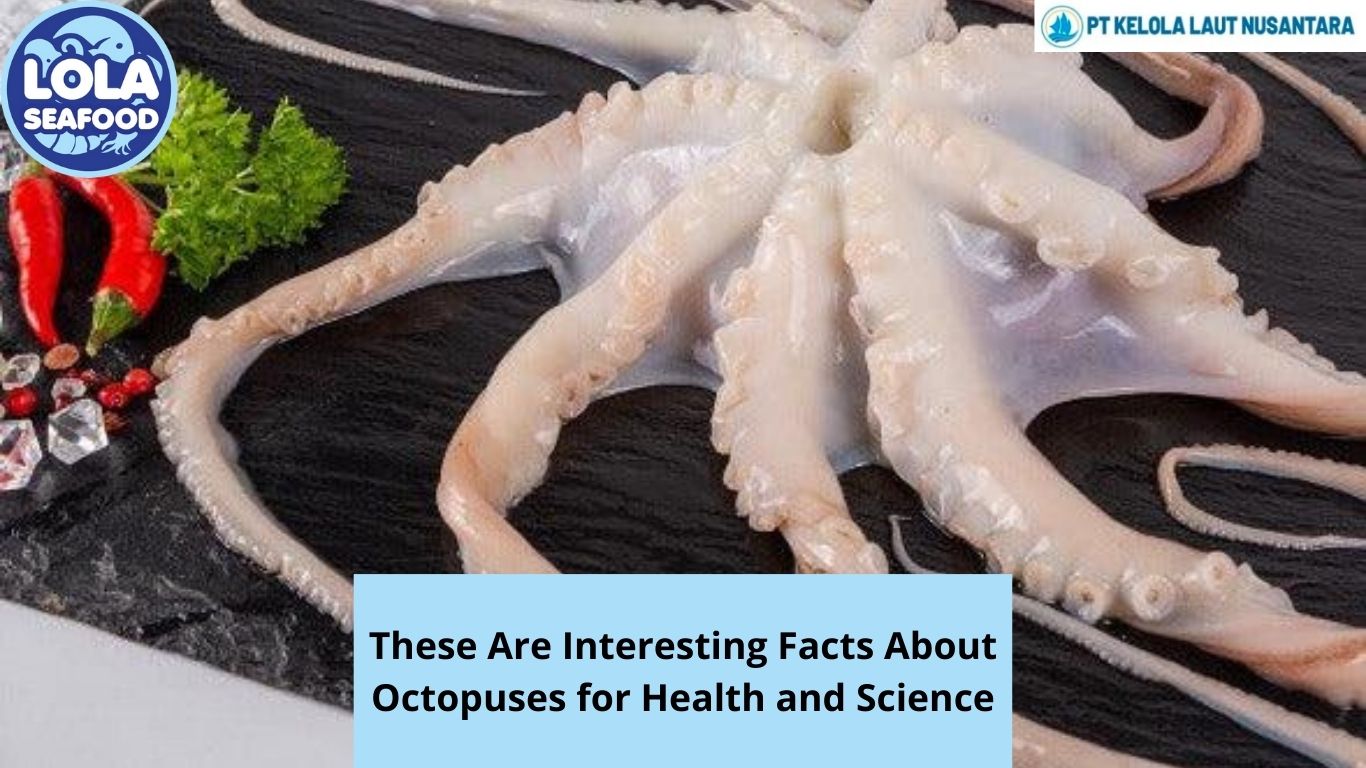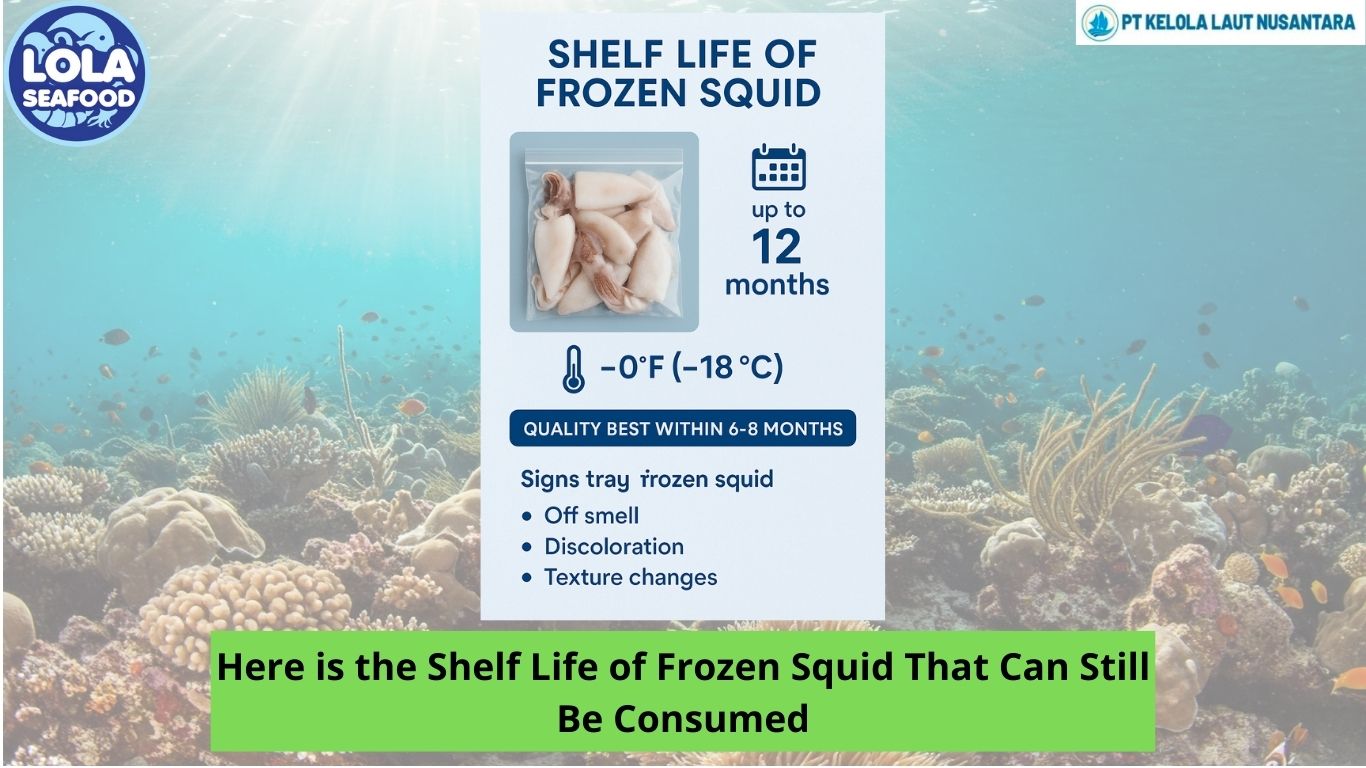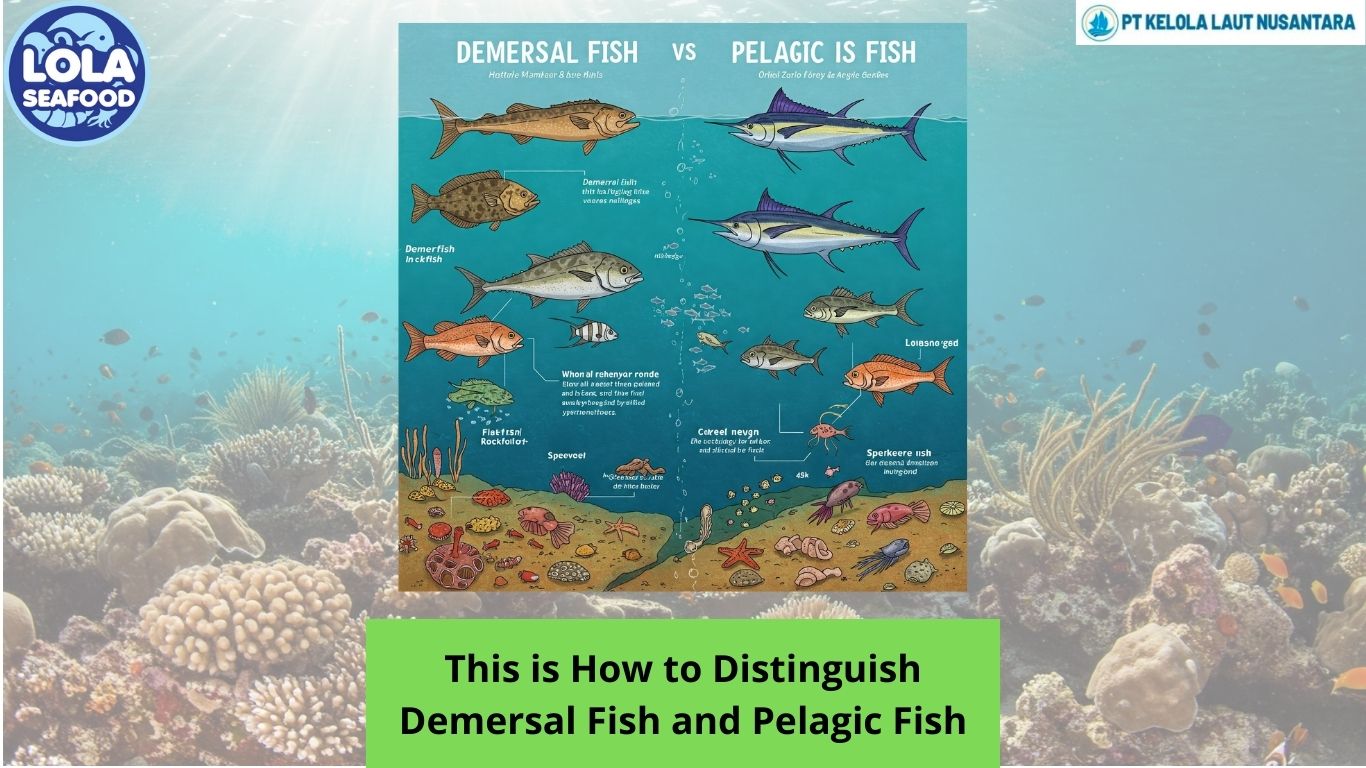These Are Interesting Facts About Octopuses for Health and Science
By. Ely Kusniawati - 13 Jan 2025
Kelolalaut.com The octopus, known for its intelligence, dexterity, and adaptability, is more than just a marine marvel. This extraordinary creature has recently captured the attention of the health and scientific communities for its potential benefits in medicine, biotechnology, and human health. With its unique biology and abilities, the octopus serves as an inspiration and a source of innovation in various fields.
Unique Biology and Health Insights
Octopuses possess remarkable regenerative abilities. Unlike humans, who have limited tissue regeneration capabilities, an octopus can regrow a fully functional arm within weeks. Scientists are studying the molecular mechanisms behind this regeneration, with hopes of translating these findings into therapies for human tissue repair, wound healing, and even limb regeneration.
Their blue blood, rich in the copper-based protein hemocyanin, allows octopuses to thrive in low-oxygen environments. This unique adaptation has sparked interest in developing novel treatments for conditions involving oxygen deprivation, such as stroke or cardiac arrest. Additionally, the way octopuses manage their immune systems to fend off infections in open wounds has potential applications in designing new antimicrobial therapies.
Contributions to Neuroscience
The octopus boasts an incredibly sophisticated nervous system, with over 500 million neurons, most of which are located in its arms. This decentralized nervous system enables each arm to operate semi-independently, a phenomenon that has intrigued neuroscientists. Studying how octopus neurons communicate and process information may provide insights into improving artificial intelligence systems and understanding neural networks in humans.
Their ability to learn, solve puzzles, and exhibit problem-solving skills has also made octopuses valuable models for studying cognition. Research on their memory and learning processes could advance treatments for neurodegenerative diseases like Alzheimer’s and Parkinson’s.
Biomimicry and Medical Innovation
Octopus-inspired technologies are revolutionizing healthcare. Their flexible and adhesive arms have inspired the development of advanced robotic systems, such as soft robotics used in minimally invasive surgeries. These robots mimic the dexterity and precision of octopus arms, allowing surgeons to perform complex procedures with reduced risks and faster recovery times for patients.
Furthermore, the octopus's skin, capable of rapid colour and texture changes, is being studied to create next-generation medical materials. Researchers aim to develop smart bandages that change colour to indicate infection or deliver targeted drug therapies, enhancing wound care.
Octopus Proteins in Drug Development
Certain proteins in octopus venom hold potential for pharmaceutical breakthroughs. Although not as well-known as snake or spider venoms, octopus venom contains compounds that can influence blood pressure, pain perception, and inflammation. Early studies suggest these compounds could lead to new classes of painkillers, anticoagulants, or anti-inflammatory drugs.
Ethical Considerations
While octopuses offer incredible potential for health advancements, ethical considerations in their use are paramount. As highly intelligent creatures capable of experiencing pain and stress, researchers emphasize humane practices in studies involving octopuses. Balancing scientific progress with ethical responsibility is crucial to preserving their well-being.
The octopus, with its extraordinary biology and abilities, is more than a marvel of the ocean—it is an emerging ally in advancing human health. From regenerative medicine to robotics and drug development, the octopus continues to inspire innovative solutions. As research progresses, this enigmatic creature may unlock new pathways to improve health and enhance our understanding of life’s complexities.
If youre interested in our Baby Octopus Flower, Baby Octopus Whole Round, Octopus Leg and Baby Octopus Whole Cleaned please do not hesitate to contact us through email and/or whatsapp.

.jpg)
.jpg)
.jpg)




